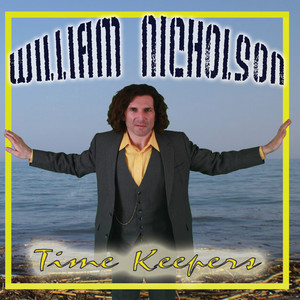
- 歌曲
- 时长
简介
From the very first note of the exquisitely crafted and wrenchingly conceived, Time Keepers, the listener is at once beckoned by a clarion call ringing from one’s own existential conundrums and with the masterful inveigling of Taking on Water’s lyrics, which, despite the theme of losing a very close family member, tempts the body (the living) to tap and sway and even dance on the discomforting grave of our own threadbare platitudes and easy answers. “Don’t talk about Jesus/Plenty of people have died…,” are the first words we hear, in the context of having a brother lie dying in a hospital ward bed. At the risk of sounding like Kubler Ross redux, anger, alternately, raw and seething--like un-stoked brimstone-- sears into the listener’s consciousness. Far from having the effect of committing self-induced emotional waterboarding, this song is a Yellowstone caldera strength force of nature. Potent, yet contained. Decorum maintained. But this song knows that we are all taking on water. Life is a journey we barely understand—and becomes even more confounding when a loved one dies. This song says that we don’t have to bow our heads and pray. This song is Howard Beal writ six-string. This song is a primal scream. We all take on water. And none of us float. Anger is only a stage. It is a passage along a greater journey. We don’t start at the destination. Even as we fully live in our bodies, we are but peripatetic souls rummaging through the bone and gristle of experience to find the answer to the gorgeously composed and played question in How Long: “How long can I keep hoping that Love is what Life is for?” One of the early climaxes of Time Keepers is the song, The Promised Land. This song is arguably the masterpiece of the album, though taking any one gem from this crowning achievement would be akin to holding a hologram fragment in your hand. Any one of these songs taken alone would feel satisfying and whole. Yet, there is something more to it. The more complete it feels, the more palpable the missing parts become. Time Keepers is not a mere collection of songs. Upon listening to the album in its entirety in sequence, the listener finds that he had taken a most unexpected yet profoundly gratifying journey into Proustian remembrances of love and loss and awakenings to the desert sand epiphanies into Life. We want to know, Why? When uplift lets us down and another loved one is six feet under, we want to scream: WHY? Kitchen Table is what we hear when the crying abates and the voice has but a raspy, whisper left. It is a reminder to listen. We are gratified by some great spirit’s mercy to be quiet and not think so hard, to not work so hard at wondering, if life, why death? “Why should I fear death?” wrote Epicurus, “If I am, death is not. If death is, I am not. Why should I fear that which can only exist when I do not?” Time Keepers continues with more songs that continue the theme from various angles until an unexpected and wholly un-contrived semblance of a kind of acceptance is experienced in the final two cuts. The journey comes to its conclusion. The listener has arrived at no pre-confabulated destination. We only know that we took our souls for a ride on a very intellectually, emotionally and spiritually moving “concept album” in the brightest and most righteous sense. It is a journey both listener and performer share together. For in the end they go their separate ways—and the more palpable the missing parts become.



